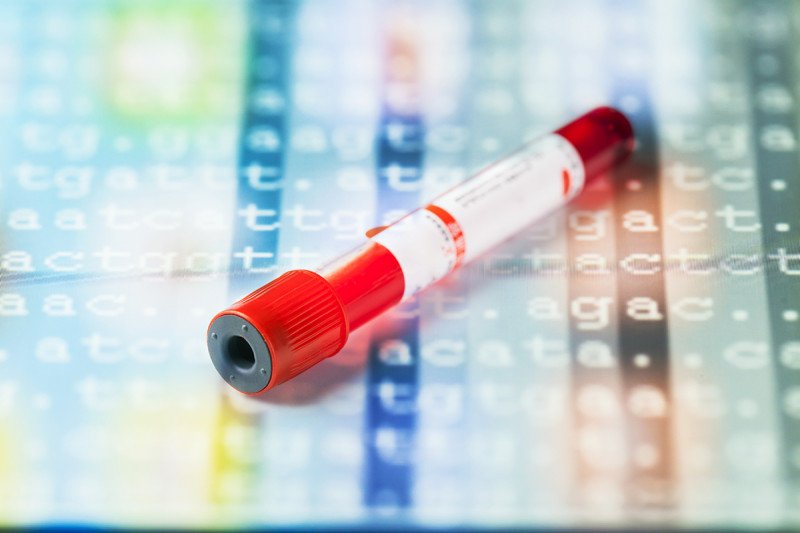
Between 600 and 800 MSK patients have their tumors analyzed through MSK-IMPACT every month.
By studying the genetic makeup of patients’ tumors, researchers and clinicians learn a tremendous amount about their disease, such as how different mutations affect responses to specific treatments. Now a team of nearly 100 Memorial Sloan Kettering researchers has reported the results of genomic sequencing for the first 10,336 patients to undergo analysis with the test called MSK-IMPACT.
In addition to enrolling in more-traditional clinical trials, patients who undergo genetic testing may also have the opportunity to participate in basket trials. These research studies evaluate drugs that target the mutations that drive tumors, regardless of where the cancer originated in the body. This approach allows for more-specific treatment selection and faster clinical trial enrollment and analysis.
“This study represents the culmination of a major collaborative effort in performing clinical sequencing of patients at MSK,” says geneticist Michael Berger, who is the senior author of the new study, published in Nature Medicine. “The first 10,000 patients were a big investment for us from a standpoint of both time and of money. This paper describes the landscape of clinically relevant mutations in people with advanced cancer and demonstrates how the tumor sequencing data contributed to their care.” In total, 10,945 tumors were sequenced as part of this study.
A Technology that Benefits Patients
The researchers reported in the study that nearly 37% of the patients who had their tumors sequenced through MSK-IMPACT had at least one actionable mutation. This means that drugs to target these mutations were available, either in a clinical trial or as part of the standard of care. Overall, 11% of patients, more than 1,000 in total, participated in clinical trials of treatments that directly targeted the genetic alterations in their tumors. (Some patients couldn’t participate because other health problems disqualified them.)
But Dr. Berger points out that a much higher percentage actually benefited from the MSK-IMPACT testing. Many patients received treatment with targeted drugs that are already standard therapy; still others received immunotherapies. Research has shown that compared with people who have fewer mutations, those with a large number of mutations are more likely to respond to immunotherapy. In addition, sequencing may reveal that a person is unlikely to respond to a particular drug and thus spare them from unnecessary treatments and side effects.
Back to topExpanding the Role of Genomic Sequencing
Until recently, genomic testing was considered routine practice only for patients with certain solid tumors, such as melanoma, lung cancer, and colon cancer. MSK-IMPACT is more inclusive and can be used on any solid tumor regardless of its origin, which could potentially offer better treatment options.
When it launched in 2014, the test looked for mutations in 341 genes known to play a role in cancer. That number has since expanded to 468.
The number of people sequenced is also growing. Although the paper reported on about 10,000 patients, that achievement was reached in summer 2016. Today, more than 16,000 patients have had their tumors sequenced with MSK-IMPACT. The figure is continuing to increase at a rate of 600 to 800 new patients each month. Sequencing efforts are currently focused on patients who have metastatic (stage IV) disease, because that is where the need for new treatments is greatest.
Back to topSeeking Important Information in the Data
The focus on advanced tumors — including many from patients who have already received one or more treatments — has enabled MSK-IMPACT to produce valuable insights about disease progression and resistance. “We see a different spectrum of mutations than what has been observed in patients who are newly diagnosed with early-stage cancer,” explains Ahmet Zehir, Director of Clinical Bioinformatics and one of the study’s co-first authors. “We’ve found that certain genes are mutated more frequently in patients with advanced cancer who undergo MSK-IMPACT testing. This indicates that these genes are important for the progression of disease — how it spreads and how it develops resistance to therapy.”
Another difference is that all MSK patients who have their tumor sequenced by MSK-IMPACT also have noncancerous cells from their blood sequenced. “The most immediate benefit of this is that we can distinguish between tumor-specific mutations and those that are inherited in the germline, which don’t always have therapeutic significance,” says Ryma Benayed, technical director of clinical sequencing and the study’s other first author. By studying these normal blood samples, MSK researchers are gaining knowledge about the hereditary aspects of cancer, especially through work conducted by the Robert and Kate Niehaus Center for Inherited Cancer Genomics.
All of the data collected through MSK-IMPACT testing are being made available to the larger scientific community through a database developed at MSK called the cBioPortal. Patients’ identifying information is stripped out but their clinical records are included. This allows researchers at MSK and beyond to study the connections between particular genomic alterations and patients’ responses to therapy and eventual outcomes.
“Right now we’re exploring how we can expand this testing beyond people with metastatic disease,” Dr. Berger says. “If we can do this kind of analysis on biopsies taken before surgery, it could have implications for the treatment that patients receive both before and after surgery or determine whether surgery is even appropriate. We are only at the beginning of using this technology for the benefit of our patients.”
Back to top


